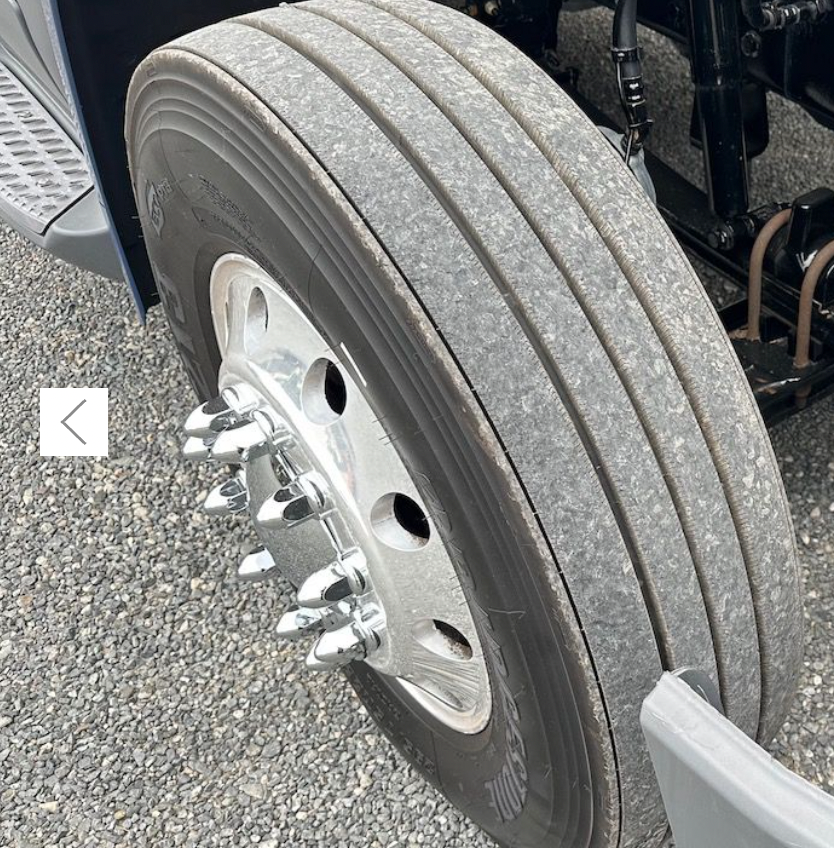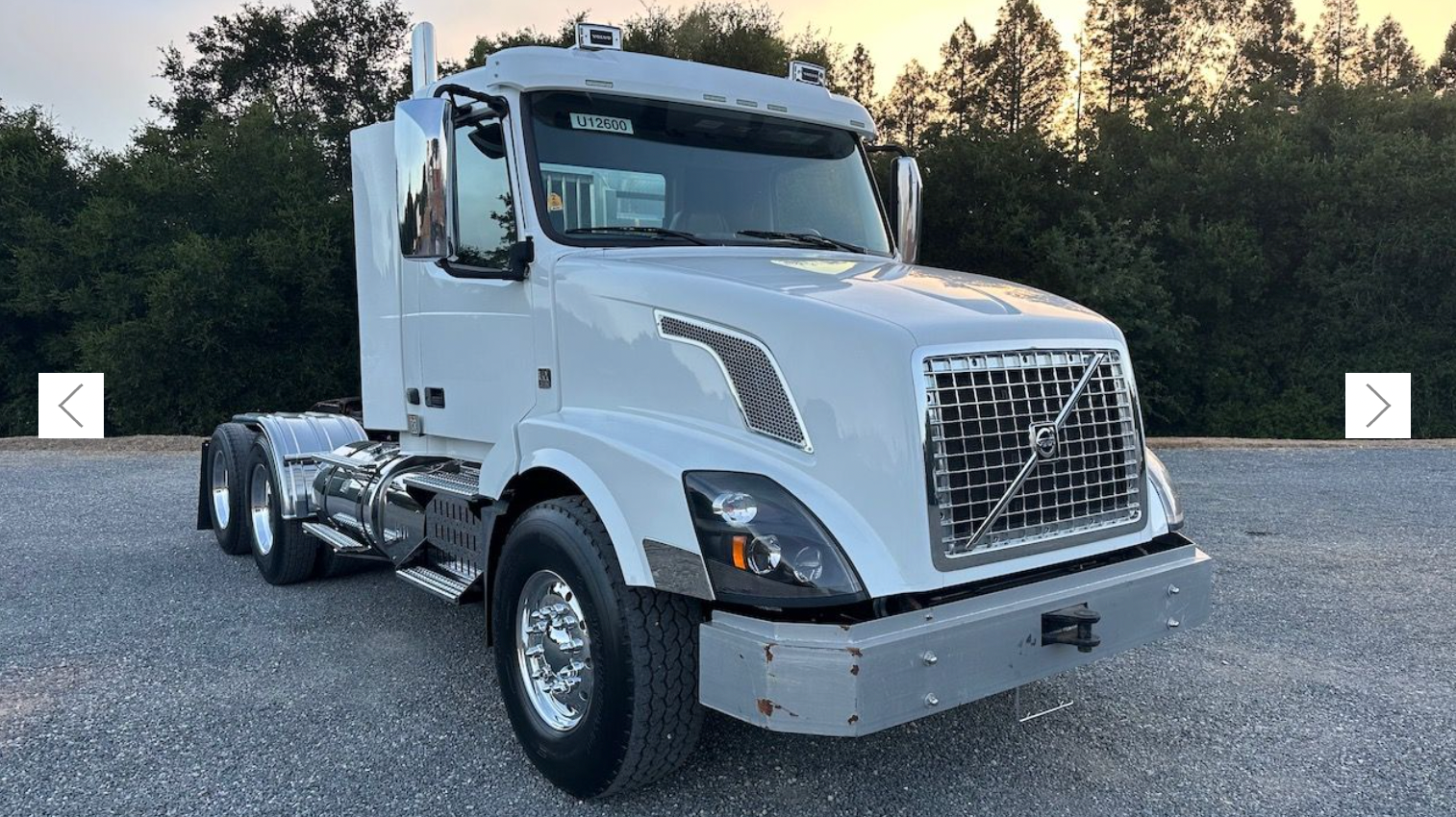
Gain Control Over the Condition of Your Next Used Truck
Whether your next semi-truck purchase is new or used, the goal of every owner operator, fleet manager, or company when purchasing vehicles is to find reliable semi-trucks that meet their expectations.
In the new truck space, there are numerous articles and reviews about the “Best Semi-Truck Brands.” No matter if you are looking at Kenworth Trucks, Peterbilt Trucks, Mack Trucks, or Freightliner trucks to name a few, they will all tout their reliability. Gaining control of your next truck’s condition is not an issue when purchasing new.
But what about in the used space?
Gaining control over the condition of the truck you are about to purchase will be a concern. You don’t know who owned the semi-truck, how many drivers sat behind the wheel, or how it was treated. While “best brands” research is important, there are a lot more moving parts in the used heavy duty trucks space, than purchasing new.
Have no fear, to better your odds for a successful used semi-truck purchase, simply adhere to the following rules.
Know What You Are Looking for in a Semi-Truck
In our article How to Buy a Used Semi-Truck, we walk you through the steps of purchasing a big rig. In this article, we will take our guidance one step further.
We will teach you how to compare apples to apples between dealerships so you get the type of truck you are looking for, in the condition you desire.
Why Is Comparing the Condition of Your Used Semi-Truck Important?
For Owner Operators, in particular, finding a used truck is the easy part. However, understanding the condition of the truck prior to purchase in relation to what you need is the key to a sound business decision.
For example: If fuel efficiency is the most important feature you seek in a semi-truck, you will be looking at newer models that have the latest technology. Or you may look at alternative fuel options, such as electric trucks to gain that efficiency.
The condition of the truck that is needed for fuel efficiency is going to be completely different than the semi-truck needed to haul an end dump from a transfer station to the dump located a few miles away. The person running a short haul vs a long haul will value an inexpensive semi-truck that favors reliability over good fuel efficiency and beauty.
The person who has been contracted to haul trailers out of an image-conscious manufacturer may have requirements where cosmetics are as important as fuel mileage. They will be looking at used trucks far differently than the one who needs a fuel efficient truck, and one who needs a truck that is hauling to the dump.
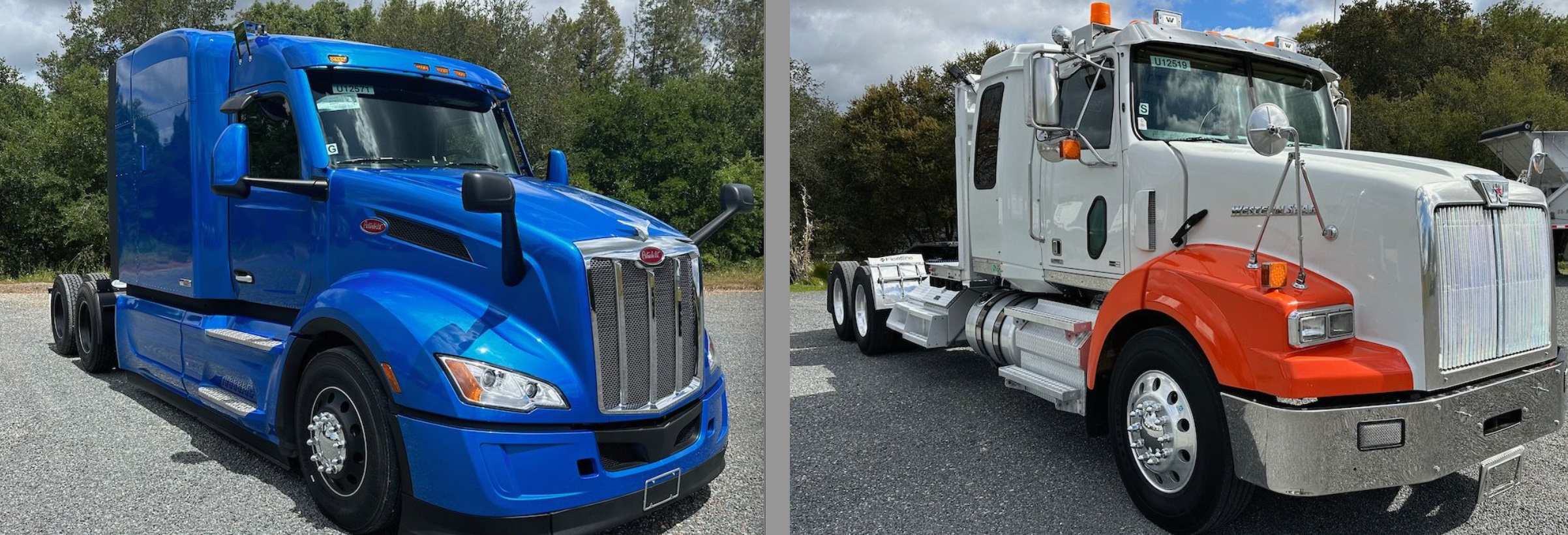
How To Compare Apples To Apples From Dealer To Dealer (as well as brand vs brand)
We are going to give you a framework that allows you to make an apples-to-apples comparison to get the best unit for your application.
The more units you review and compare like to like, three vital things will transpire:
- You will get more comfortable making your decision to purchase
- You will purchase the best unit with confidence and most of the unknowns will disappear
- A standard will be created for future purchases
Specifications are just one piece of the puzzle
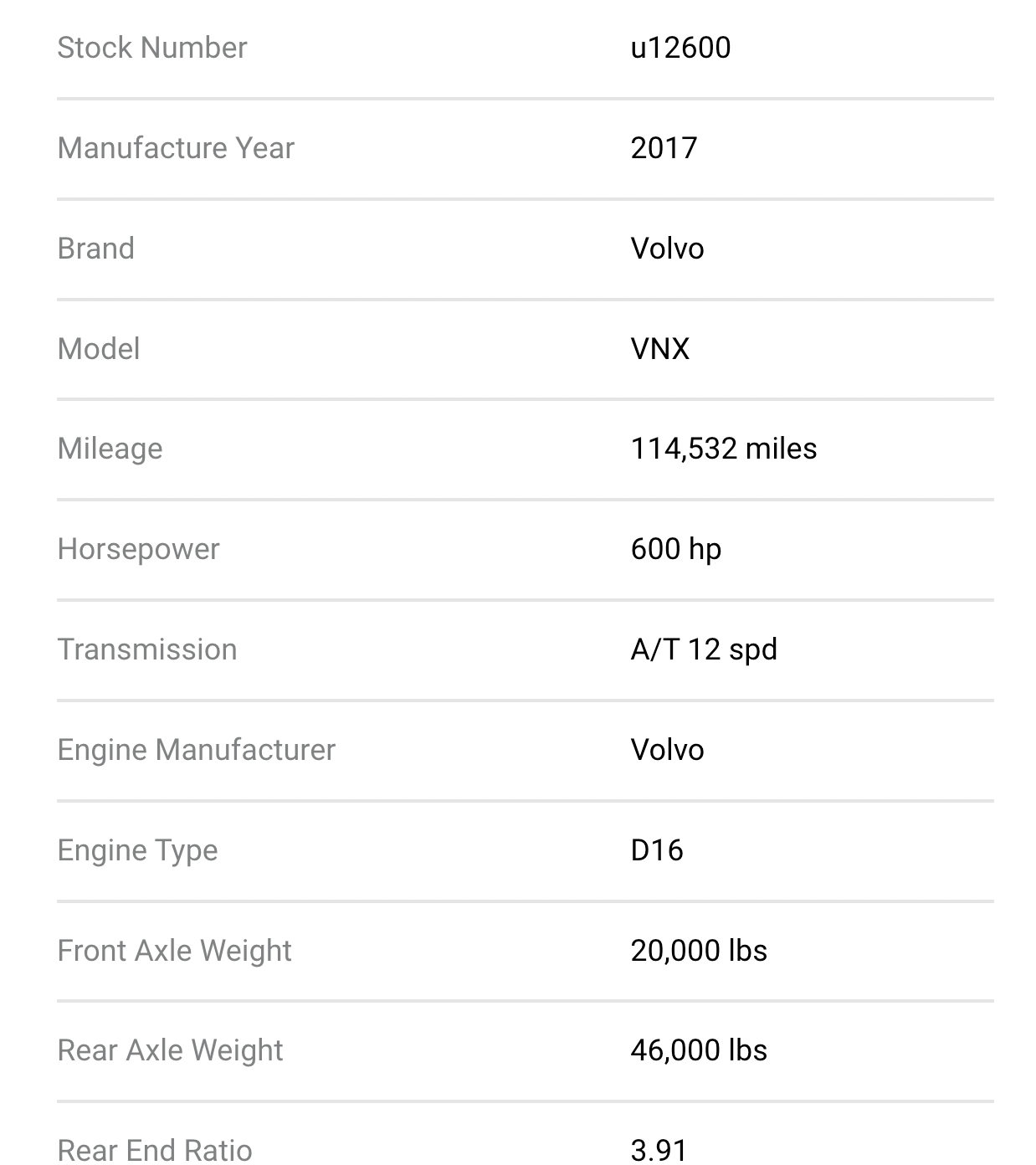
No matter whether you are looking at Kenworth models or International trucks it is fairly easy to compare specifications. While a model to model specification comparison from one dealer to the next can give you an idea of whether the truck will work for your purpose, it doesn’t help you in gaining control of the condition for the purpose of comparison.
Where To Begin
Gaining control of the condition for your next semi-truck purchase takes time and patience. The good news is, spending the time to find quality trucks now will save you money in the long run.
Each used semi-truck dealership presents information differently. All dealerships play to their strengths. Used dealerships that sell semi-trucks value what they believe you will value, things such as:
- Price (“Save money!”)
- Peace of Mind (“Free limited-time warranty!”)
- Range of Product (“One place to find all the popular semi-truck brands!”)
- Financing. (“Affordable payments!”)
- Service. (“You can find the same service and repair shops in many locations!”)
While these are all exceptional values that are worthy of promoting, they will not help you with a one-on-one comparison. In fact, information from dealership to dealership can vary so widely that it feels like it is impossible to compare.
To level the playing field, we suggest you start with the basics.
- Review the truck inspection sheet of the trucks you wish to buy
- Understand the three major parts of a truck
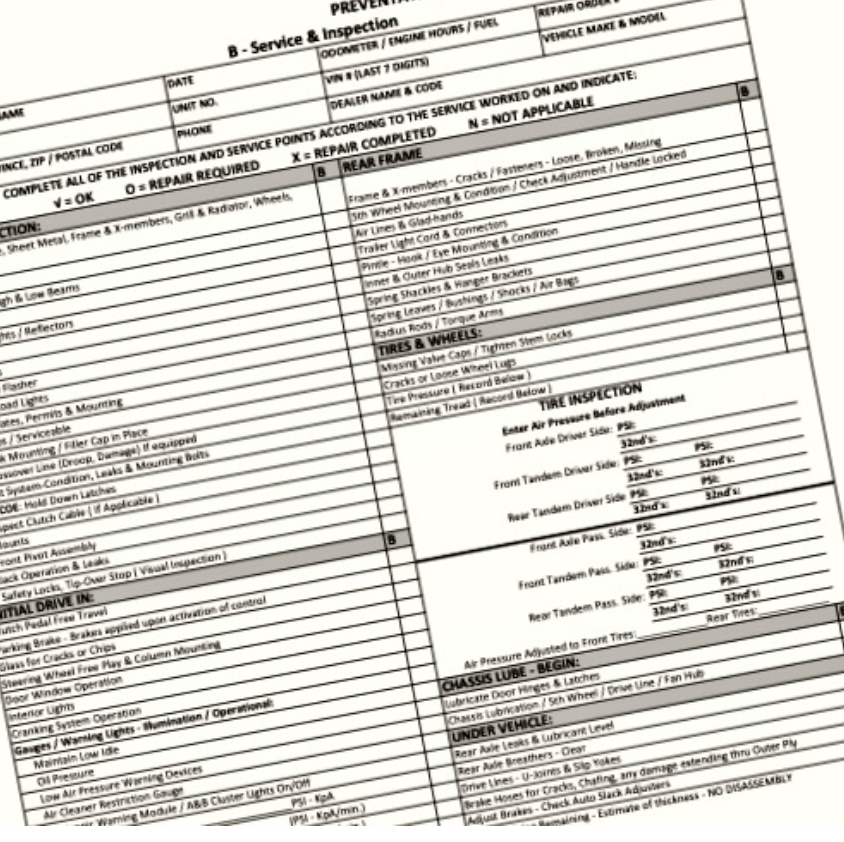
The Truck Inspection Sheet
In California, a truck must be inspected every 90 days and most dealers do their own inspections once they buy a truck. Ask to see the most recent truck inspection sheet. Compare inspection sheets between the semi-trucks you are considering purchasing. Inspections sheets will help:
- Confirm proper maintenance
- Lets you know what needs to be done today
- Get a handle on future repairs
- Shines light on the semi-trucks strengths and weaknesses
Understand the Three Major Parts of a Truck Before Making the Investment to Buy
Once you have examined the inspection sheet, it is time to compare the conditions of the semi-trucks you are comparing. Break down the framework into manageable sections. This will allow you to remember what conditions are most important to you.
The three major parts of the truck are the Cosmetics, the Structure, and the Consumables.
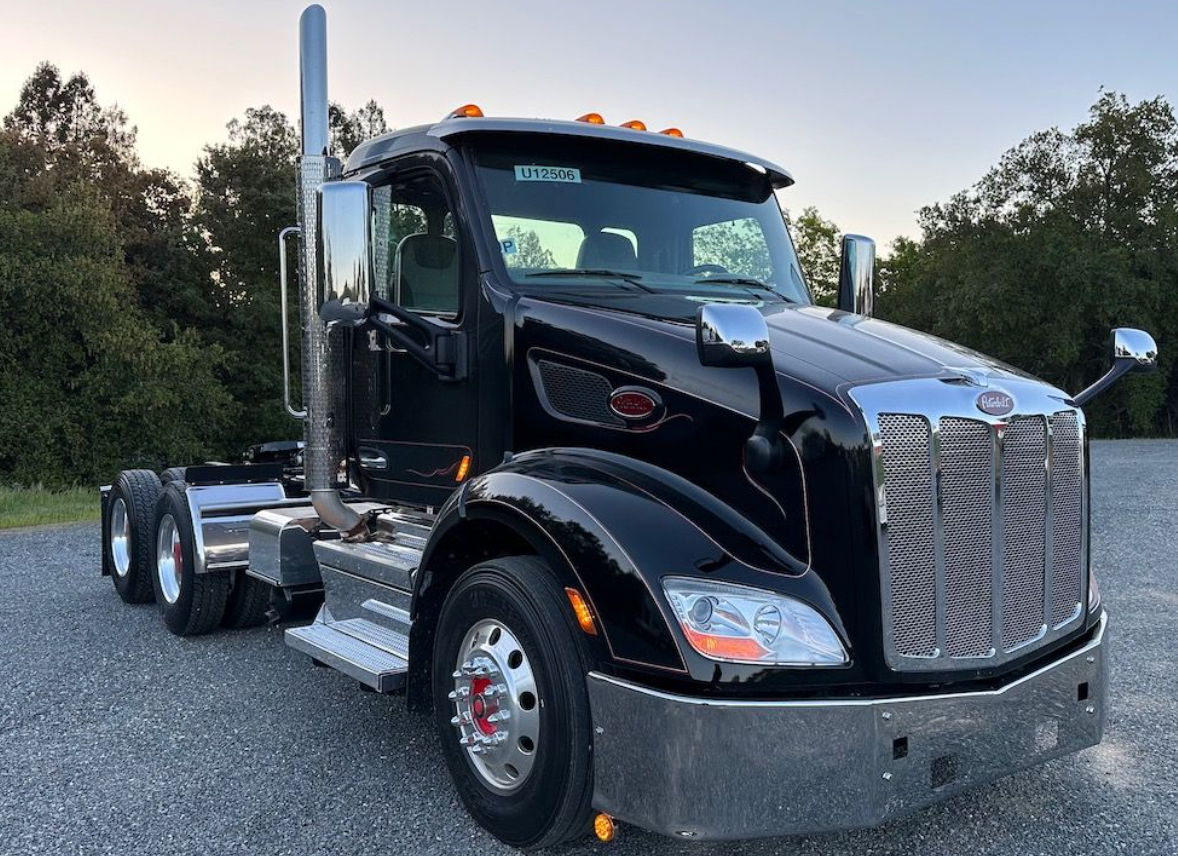
Comparing Cosmetics
Many owner operators and companies don’t take into account cosmetics when comparing trucks to purchase. They say all they are concerned about is finding a dependable truck.
This can be a mistake.
If you are someone who likes your truck dialed in, cosmetics are important and they also can play a role in your bottom line. Comparing cosmetic differences is vital to choosing the correct truck to fit your needs.
Cosmetics Can Play a Key Role in Good Fuel Efficiency
A disfigured grill, broken side fairings, or a damaged roof fairing will all cause drag, making your truck less fuel efficient. While these cosmetic defects may only cost you a few dollars per tank full, they add up over time.
Two trucks with everything else equal except for cosmetics are not the same truck.
Customers Value a Cosmetically Clean Truck
Paying a little more for a cosmetically clean truck is good for business.
If your business involves moving product, a truck with a cracked bumper, damaged side mirrors, and fenders may have customers wondering if their product will arrive in the same condition.
Often times your truck is your reputation.
Remember, two trucks with everything else equal except for cosmetics are not the same truck.
Cosmetics Can Impact Driver Retention
Retaining experienced drivers has become priority number one for many companies. Taking truck drivers into account when purchasing any semi-truck brand should be a key factor in your next purchase. A truck that hauls dirt or rock doesn’t need to be cosmetically perfect. However, when comparing trucks, one with a cosmetically poor interior could have an impact on the driver experience. If your competitor is paying the same wage and has the same benefits, the driver’s comfort could be incredibly important to driver retention.
Cosmetics Repairs Are Expensive
If you are comparing two trucks and are choosing the cheaper one in hopes of fixing the issues after the fact, make sure you can afford to have your truck sitting. The best semi-truck is the one that is working.
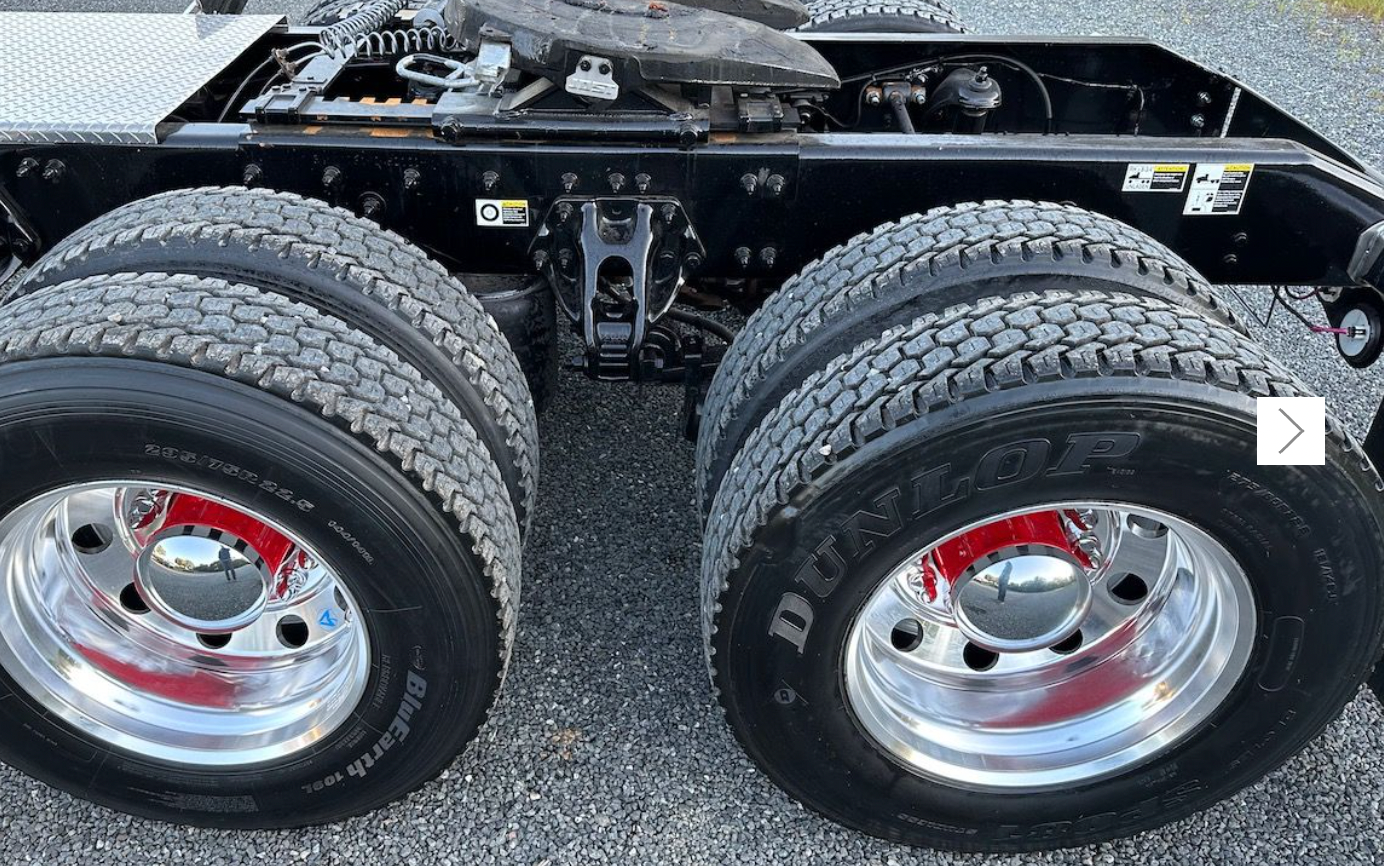
Structure
Often overlooked is comparing the structure of the trucks. The structure is your foundation. Make sure you examine the following:
- Cracks or Damage: Look for any visible cracks, rust, or signs of damage along the entire length of the frame. Pay close attention to areas near stress points, such as suspension mounts, engine mounts, and cross members.
- Corrosion and Rust: Check for rust and corrosion on the frame, especially in regions exposed to road salts or moisture. Surface rust may not be an immediate concern, but advanced corrosion requires attention and possible repairs.
- Welding Integrity: Inspect all welded joints and connections for signs of poor welds, cracks, or incomplete welds. High-quality and well-executed welding is essential for maintaining the strength of the frame. Look for any signs of repairs or modifications that might have been done in the past and assess their quality.
- Alignment and Symmetry: Measure the frame to ensure it is straight and not twisted or bent. Misalignment can lead to uneven tire wear, steering issues, and poor vehicle handling. Check for symmetry from side to side to ensure the frame has not suffered any damage from accidents or impacts.
- Suspension and Mounts: Examine the suspension components and mounts for wear, cracks, or damage. Proper suspension is crucial for maintaining vehicle stability and safety.
- Always perform the inspection on level ground and under proper lighting conditions. If you are not familiar with inspecting semi-truck frames, don’t let your ego get in the way, hire a qualified mechanic or technician to conduct the inspection to ensure a thorough and accurate assessment.

Comparing Consumables
When comparing conditions between trucks, consumables play an important role.
What Are Consumables?
Consumables are semi-truck parts that are replaced on a regular basis. Tires, brakes, and routine service are all semi-truck items that are consumable.
Things to Consider When Comparing Consumables
Comparing the following will help you make an informed decision.
- Tires. Brands, recaps, and tire depth and condition should all be considered when comparing truck conditions. Make sure you are comparing similar items.
- Service Intervals. Service intervals, the cost of parts, and the availability of parts for a service need to be compared. Service intervals between engine models can vary widely.
- Service Locations. You purchase the best semi-truck brand with the lowest cost of ownership, but if the nearest dealer location is 200 miles away, the cost of transporting and the downtime could make this semi-truck the most expensive truck in the fleet.
Good things happen when you compare apples to apples
In conclusion, no matter which semi-truck brand you choose, you can gain control over your used purchase by making sure you are seeing the complete picture.
Click here to read more blogs by Charter Trucks.
